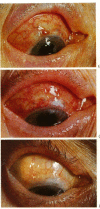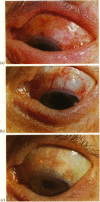Abstract
The tissue reaction, absorption, and handling properties of Dexon synthetic absorbable sutures, which are made from polymerized hydroxyacetic acid, were compared with those of silk and collagen in 51 eye operations, consisting mainly of cataract extractions and squint corrections. There was no significant difference between the sutures as regards degree of tissue reaction. The Dexon sutures were very strong and the knots held well. The sizes used in this series were found to be a little too thick and stiff for use in micro-surgery; smaller sizes would be easier to use and still remain strong enough. The Dexon was reliably absorbed in 5 weeks on average. No serious adverse reactions were seen with any of the sutures. Dexon was as well tolerated as the control sutures but had the advantage over silk of being absorbed and over collagen of containing no foreign protein.
Full text
PDF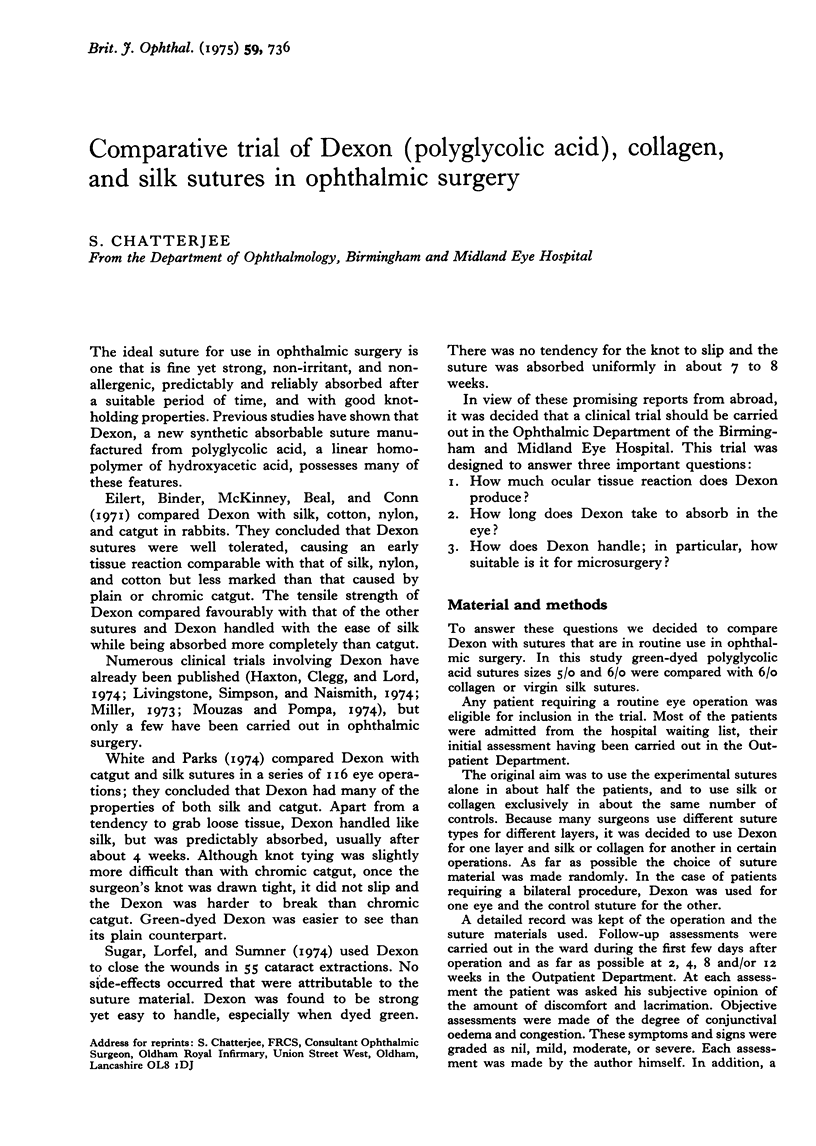
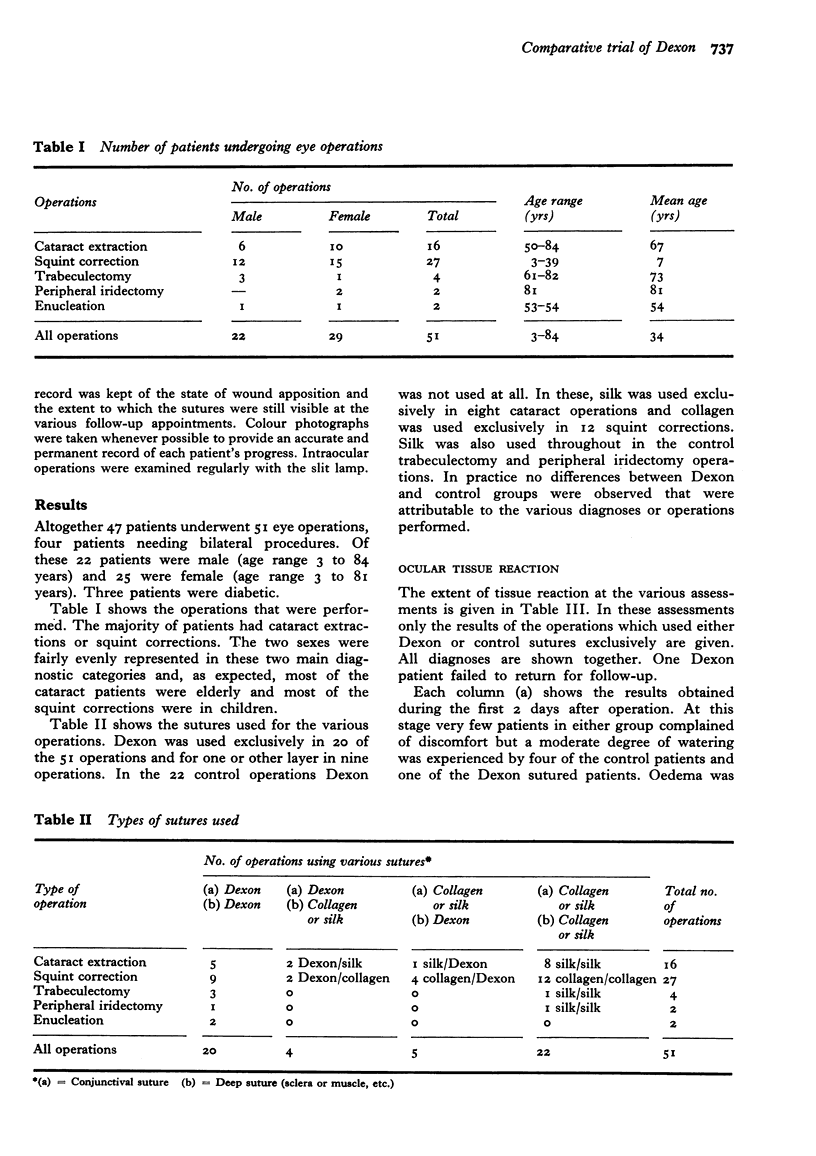
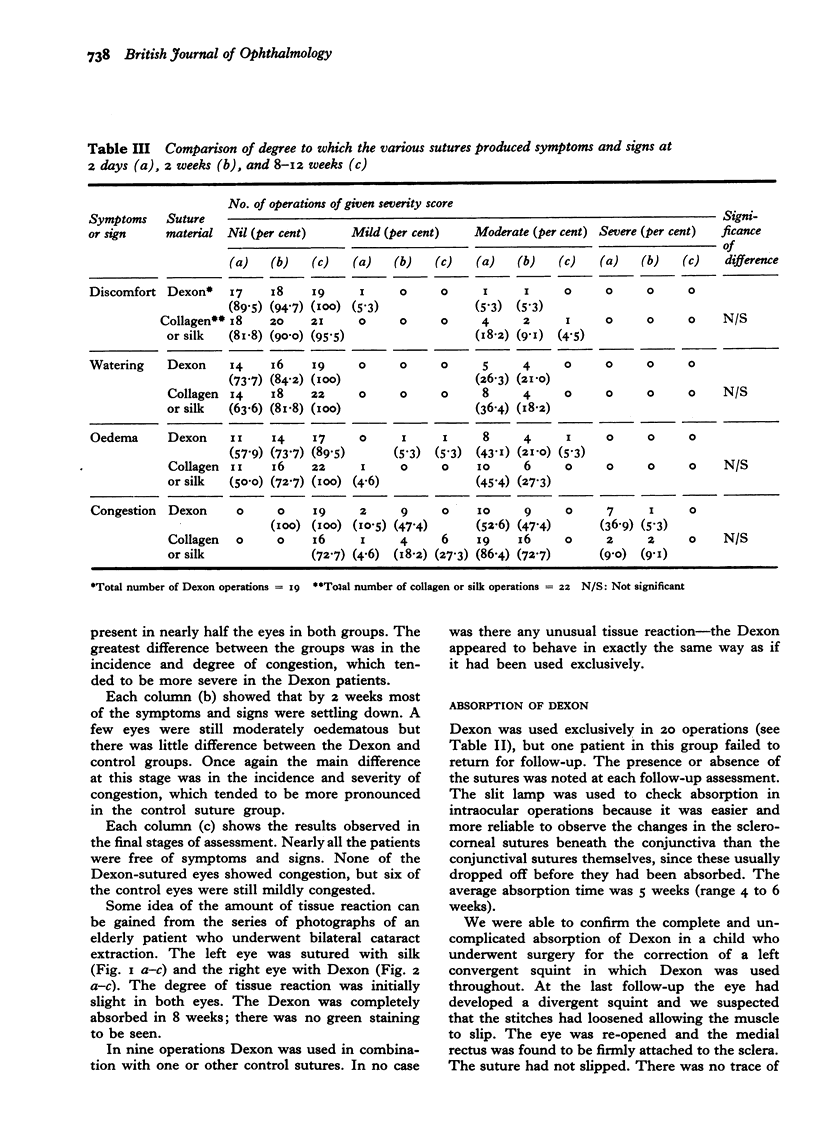
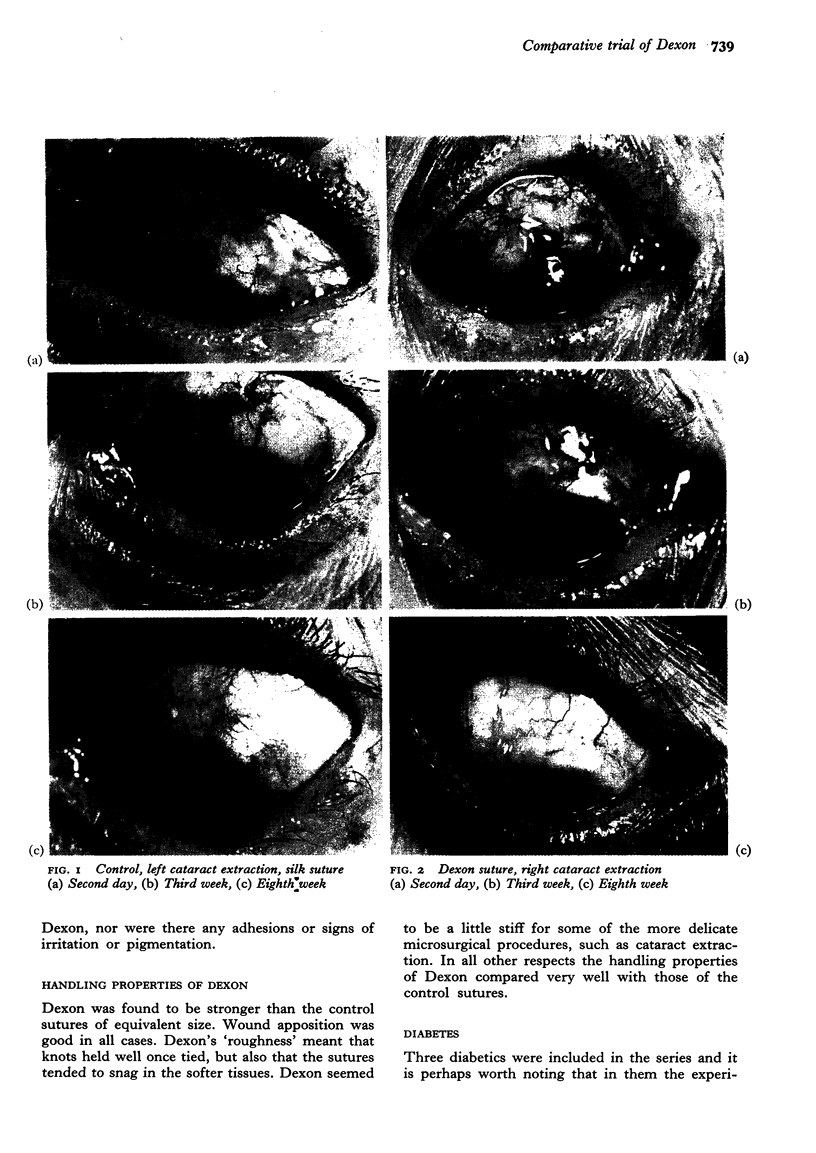
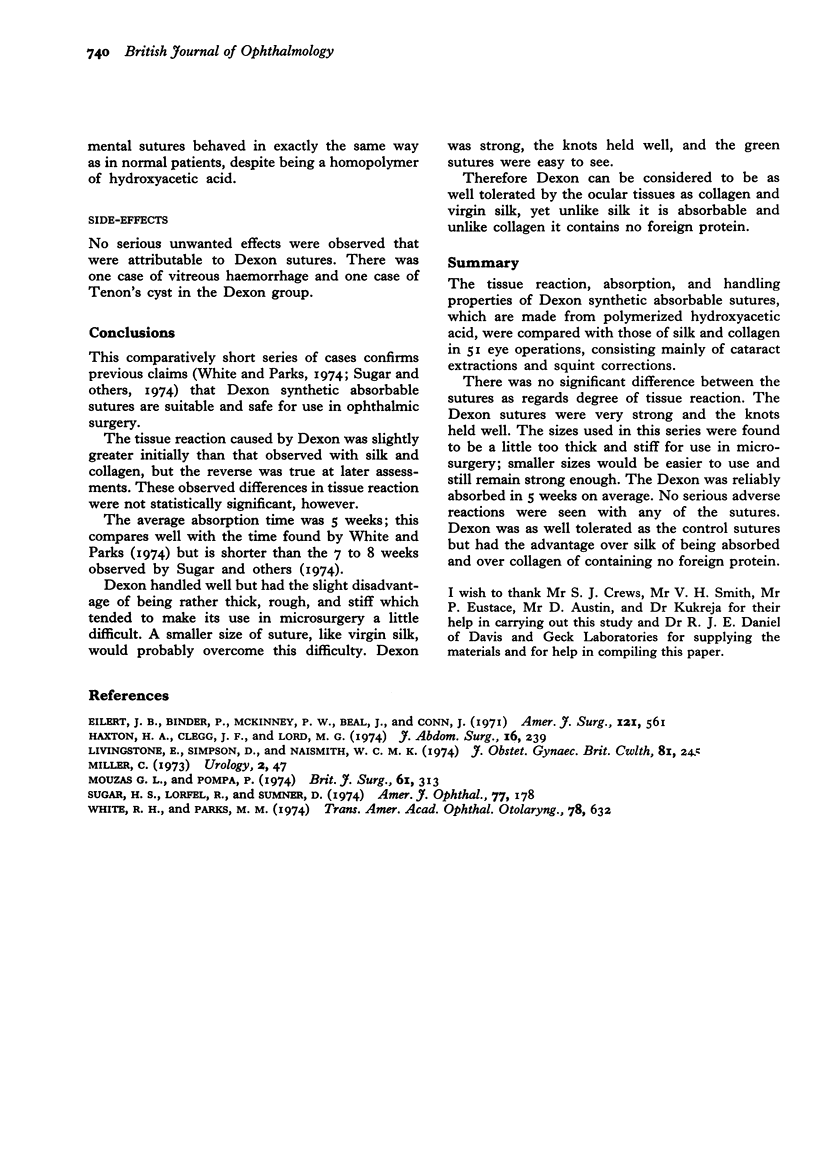
Images in this article
Selected References
These references are in PubMed. This may not be the complete list of references from this article.
- Miller H. C., Jr Reaction of polyglycolic acid sutures in the urinary tract. Comparison with chromic catgut sutures. Urology. 1973 Jul;2(1):47–49. doi: 10.1016/0090-4295(73)90214-8. [DOI] [PubMed] [Google Scholar]
- Sugar H. S., Lorfel R., Summer D. Polyglycolic acid (Dexon) sutures in cataract surgery. Am J Ophthalmol. 1974 Feb;77(2):178–180. doi: 10.1016/0002-9394(74)90671-0. [DOI] [PubMed] [Google Scholar]



